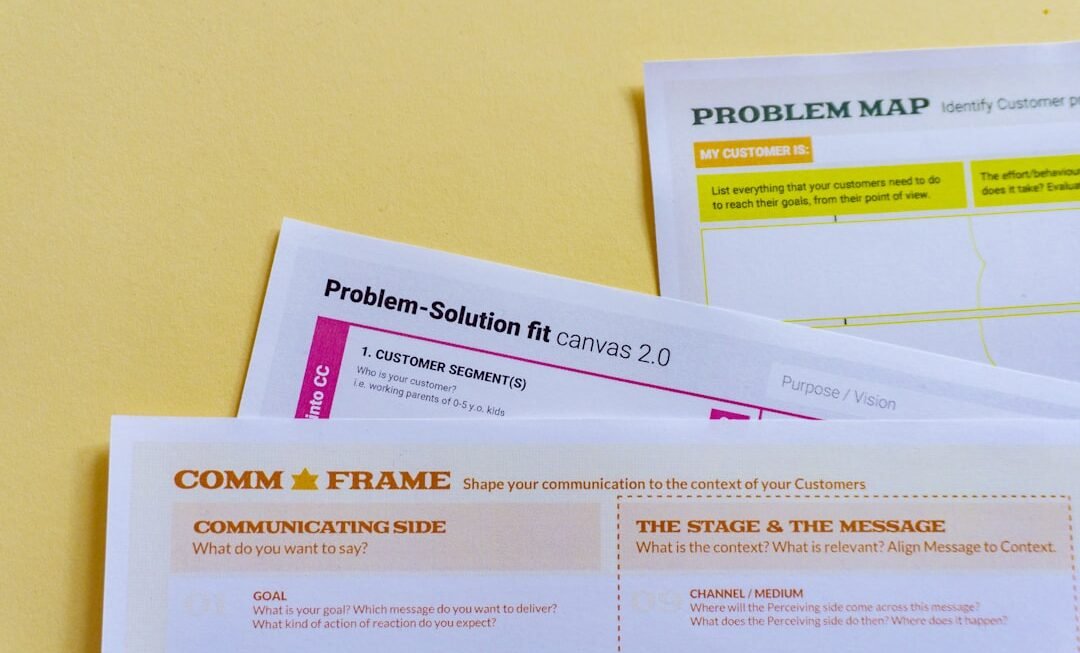In the rapidly evolving landscape of digital marketing, social media has emerged as a pivotal platform for brands to connect with their audiences. The integration of artificial intelligence (AI) into social media marketing strategies has revolutionized how businesses engage with consumers, analyze data, and optimize their campaigns. AI-driven insights provide marketers with a wealth of information that can be harnessed to enhance decision-making processes, improve customer experiences, and ultimately drive sales.
As organizations increasingly recognize the potential of AI, the need for a comprehensive understanding of its role in social media marketing becomes paramount. The advent of AI technologies has enabled marketers to sift through vast amounts of data generated on social media platforms. This data encompasses user interactions, preferences, and behaviors, which can be analyzed to uncover trends and patterns that were previously difficult to discern.
By leveraging AI-driven insights, brands can not only enhance their marketing strategies but also foster deeper connections with their target audiences. This article delves into the intricacies of AI-driven insights in social media marketing, exploring their significance, applications, and the future they promise for businesses seeking to thrive in a competitive digital environment.
Key Takeaways
- AI-driven insights in social media marketing provide valuable data and analysis for making informed decisions and optimizing strategies.
- AI plays a crucial role in social media marketing by analyzing large volumes of data, identifying trends, and predicting consumer behavior.
- The benefits of using AI-driven insights in social media marketing include improved targeting, personalized content, and better understanding of consumer preferences.
- AI-driven insights improve targeting and personalization by analyzing consumer data and behavior to deliver more relevant and personalized content.
- Leveraging AI-driven insights for content creation and optimization can help marketers understand what resonates with their audience and optimize their content strategy accordingly.
Understanding AI-Driven Insights in Social Media Marketing
AI-driven insights refer to the actionable intelligence derived from analyzing data using artificial intelligence algorithms and machine learning techniques. In the context of social media marketing, these insights can encompass a range of metrics, including engagement rates, audience demographics, sentiment analysis, and content performance. By employing sophisticated algorithms, marketers can gain a nuanced understanding of how their content resonates with audiences and identify opportunities for improvement.
For instance, sentiment analysis tools powered by AI can evaluate user-generated content across social media platforms to gauge public opinion about a brand or product. This analysis can reveal not only how customers feel about a brand but also highlight specific areas where improvements are needed. By understanding the emotional tone of conversations surrounding their brand, marketers can tailor their messaging to better align with audience sentiments, thereby enhancing engagement and loyalty.
The Role of AI in Social Media Marketing
AI plays a multifaceted role in social media marketing, serving as both a tool for data analysis and a means of automating various marketing processes. One of the primary functions of AI in this domain is predictive analytics, which allows marketers to forecast future trends based on historical data. By analyzing past user behavior and engagement patterns, AI can help brands anticipate what types of content will resonate with their audiences in the future.
Moreover, AI algorithms can optimize ad placements by analyzing user behavior in real-time. For example, platforms like Facebook and Instagram utilize machine learning to determine the best times to display ads to specific user segments based on their online activity. This level of precision ensures that marketing messages reach the right people at the right time, maximizing the chances of conversion.
Additionally, AI can automate routine tasks such as scheduling posts and responding to customer inquiries, freeing up valuable time for marketers to focus on strategy and creative development.
Benefits of Using AI-Driven Insights in Social Media Marketing
The benefits of incorporating AI-driven insights into social media marketing strategies are manifold. One significant advantage is the ability to make data-informed decisions that enhance campaign effectiveness. By analyzing user interactions and engagement metrics, marketers can identify which types of content perform best and adjust their strategies accordingly.
This iterative approach allows brands to refine their messaging and optimize their campaigns for maximum impact. Another key benefit is improved efficiency in resource allocation. With AI-driven insights, marketers can identify high-performing channels and allocate budgets more effectively.
For instance, if data reveals that video content generates significantly higher engagement than static images, brands can prioritize video production in their content strategy. This targeted approach not only maximizes return on investment but also ensures that marketing efforts are aligned with audience preferences.
How AI-Driven Insights Improve Targeting and Personalization
One of the most compelling advantages of AI-driven insights is their ability to enhance targeting and personalization in social media marketing. Traditional marketing approaches often rely on broad demographic categories to segment audiences; however, AI enables a more granular understanding of consumer behavior. By analyzing vast datasets, AI can identify micro-segments within larger audiences based on specific interests, behaviors, and preferences.
For example, an e-commerce brand may use AI to analyze customer interactions on social media platforms to identify distinct groups within its audience—such as frequent buyers, occasional browsers, or those who engage with promotional content but do not convert. Armed with this information, marketers can tailor their messaging to resonate with each segment effectively. Personalized content not only increases engagement rates but also fosters a sense of connection between the brand and its audience.
Leveraging AI-Driven Insights for Content Creation and Optimization
Content creation is at the heart of social media marketing, and AI-driven insights play a crucial role in optimizing this process. By analyzing engagement metrics and audience preferences, AI can inform content strategies that resonate with target demographics. For instance, natural language processing (NLP) algorithms can analyze successful posts across various platforms to identify common themes, tones, and formats that drive engagement.
Additionally, AI tools can assist in A/B testing different content variations to determine which performs best among specific audience segments. By systematically testing different headlines, images, or calls-to-action, marketers can refine their content strategies based on real-time feedback from users. This data-driven approach not only enhances the quality of content but also ensures that it aligns with audience expectations and preferences.
Using AI-Driven Insights for Social Media Ad Campaigns
Social media advertising has become an essential component of digital marketing strategies, and AI-driven insights significantly enhance the effectiveness of these campaigns. By leveraging machine learning algorithms, marketers can analyze user behavior patterns to optimize ad targeting and placement. For example, platforms like Google Ads and Facebook Ads utilize AI to automatically adjust bids based on real-time performance data.
Moreover, AI can help identify the most effective ad creatives by analyzing engagement metrics across different formats—such as images, videos, or carousel ads. By determining which creatives resonate most with specific audience segments, marketers can allocate resources more efficiently and improve overall campaign performance. Additionally, predictive analytics can forecast which ads are likely to perform well based on historical data, allowing brands to make informed decisions about their advertising strategies.
Implementing AI-Driven Insights for Social Media Engagement and Customer Service
AI-driven insights extend beyond content creation and advertising; they also play a vital role in enhancing social media engagement and customer service. Chatbots powered by AI can provide instant responses to customer inquiries on social media platforms, improving response times and overall customer satisfaction. These chatbots can analyze user queries in real-time and provide relevant information or escalate issues to human representatives when necessary.
Furthermore, sentiment analysis tools enable brands to monitor conversations about their products or services across social media channels actively. By understanding how customers feel about their brand in real-time, companies can respond proactively to negative feedback or capitalize on positive sentiment by engaging with satisfied customers. This level of responsiveness not only enhances customer relationships but also fosters brand loyalty.
Best Practices for Integrating AI-Driven Insights into Social Media Marketing Strategies
To effectively integrate AI-driven insights into social media marketing strategies, brands should adhere to several best practices. First and foremost is the importance of data quality; ensuring that the data being analyzed is accurate and relevant is crucial for deriving meaningful insights. Marketers should invest in robust data collection methods and regularly audit their data sources to maintain integrity.
Additionally, organizations should foster a culture of collaboration between marketing teams and data scientists or analysts who specialize in AI technologies. This collaboration ensures that insights derived from data are effectively translated into actionable marketing strategies. Furthermore, continuous learning is essential; as social media trends evolve rapidly, marketers must stay informed about emerging technologies and adapt their strategies accordingly.
Overcoming Challenges and Pitfalls of AI-Driven Insights in Social Media Marketing
While the benefits of AI-driven insights are substantial, there are challenges that marketers must navigate when implementing these technologies. One significant concern is data privacy; as regulations around data protection become more stringent globally, brands must ensure compliance while still leveraging user data for insights. Transparency in how data is collected and used is essential for maintaining consumer trust.
Another challenge lies in the potential for over-reliance on automated systems. While AI can provide valuable insights, it is crucial for marketers to apply human judgment when interpreting data and making strategic decisions. Balancing automation with human creativity ensures that marketing efforts remain authentic and resonate with audiences on a personal level.
The Future of Social Media Marketing with AI-Driven Insights
Looking ahead, the future of social media marketing will undoubtedly be shaped by advancements in AI technologies. As machine learning algorithms become more sophisticated, brands will have access to even deeper insights into consumer behavior and preferences. The integration of augmented reality (AR) and virtual reality (VR) into social media platforms will further enhance engagement opportunities by providing immersive experiences that resonate with users.
Moreover, as consumers increasingly demand personalized experiences, brands that leverage AI-driven insights will be better positioned to meet these expectations. The ability to deliver tailored content at scale will become a defining characteristic of successful social media marketing strategies in the coming years. As organizations continue to embrace AI technologies, those that prioritize ethical considerations and transparency will likely build stronger relationships with their audiences while driving business growth in an increasingly competitive landscape.












